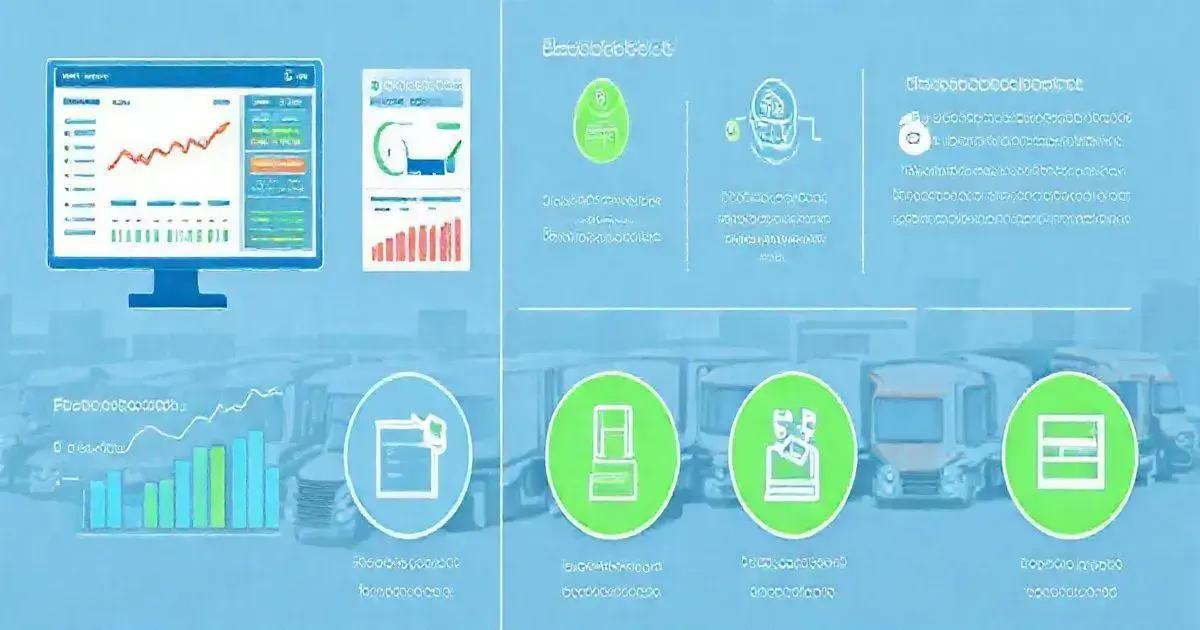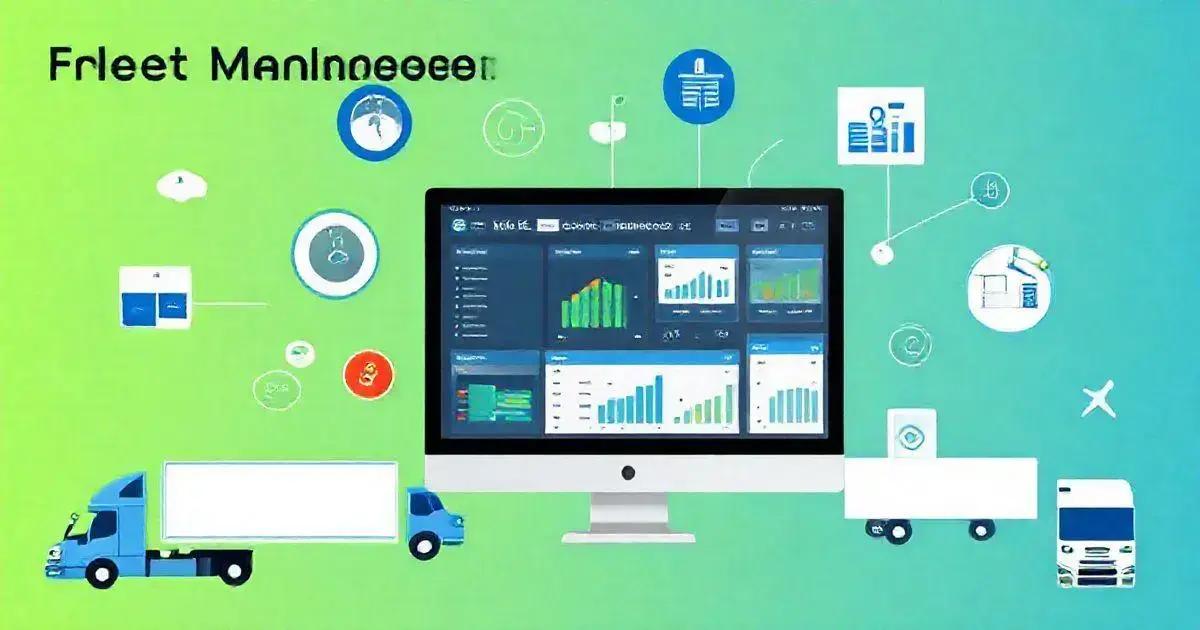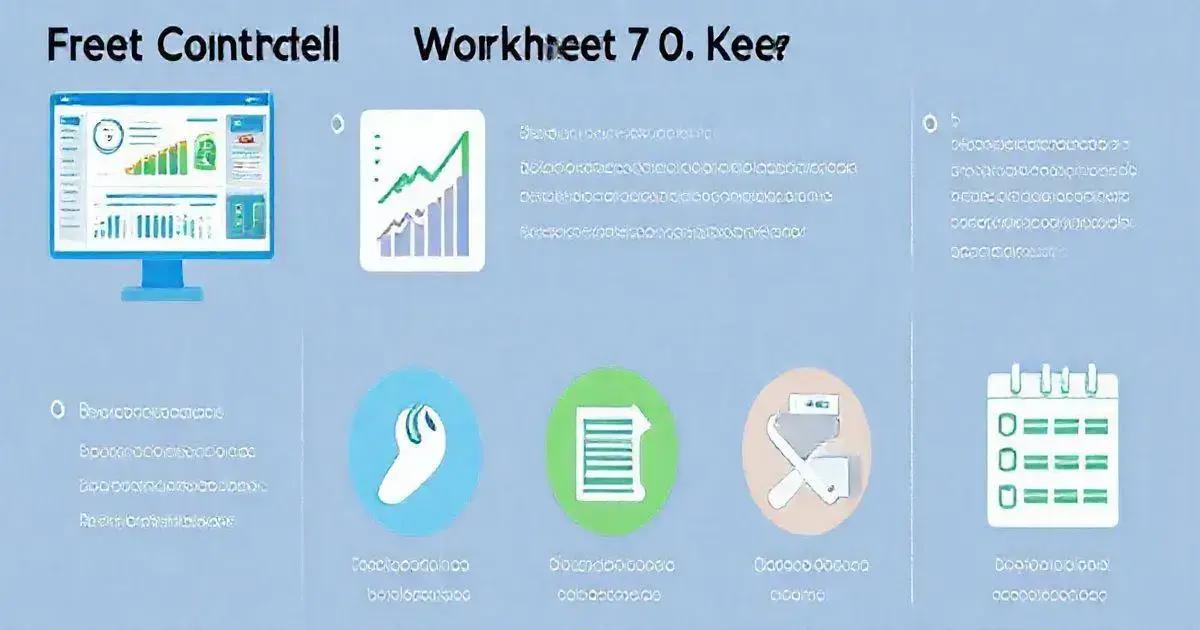5 Essential Features of Fleet Control Worksheet 7.0 Leave a comment
The Fleet Control Worksheet 7.0 is a powerful spreadsheet tool designed for efficient fleet management, offering features like vehicle performance tracking, maintenance scheduling, and cost analysis. It enhances operational efficiency and accountability, making it suitable for logistics, delivery services, and regulatory compliance.
The Fleet Control Worksheet 7.0 is a comprehensive tool designed for efficient fleet management. This worksheet offers various functionalities that streamline operations, improve cost efficiency, and enhance vehicle maintenance tracking. In this article, we will explore its key features that make it a must-have for fleet managers.
Overview of Fleet Control Worksheet 7.0
The Fleet Control Worksheet 7.0 is a powerful and user-friendly tool designed for businesses managing various types of vehicles. This advanced spreadsheet simplifies fleet management by providing a centralized platform to track multiple aspects of vehicle operations.
One of the standout features of this worksheet is its Initial Dashboard, which offers a quick glance at key performance indicators. Users can monitor parameters like total kilometers driven, fuel efficiency, and maintenance costs at a glance, aiding in immediate decision-making.
Additionally, the worksheet excels in Travel and Cargo Control, allowing managers to link cargo details to specific trips. This functionality ensures that no detail is overlooked, enabling better accountability and operational efficiency.
The Tire Control module is another significant aspect, as it tracks tire usage and maintenance schedules, ensuring the fleet operates safely and efficiently. Preventative measures can be implemented based on real-time data about tire wear and projected replacement needs, ultimately saving costs in the long run.
Furthermore, the Preventive and Corrective Maintenance tracking tools help fleet managers keep up with necessary services. This proactive approach minimizes unexpected breakdowns and extends the lifespan of the vehicles, contributing to overall fleet performance.
In conclusion, the Fleet Control Worksheet 7.0 is not just a spreadsheet—it’s a comprehensive management solution that enhances operational efficiency, reduces costs, and ensures the longevity of fleet assets. Perfect for fleet managers looking to optimize their processes and maintain a high standard of service.

Key Features
The Fleet Control Worksheet 7.0 is packed with essential features that streamline fleet management. Here are some of the key functionalities that make it stand out:
1. Initial Dashboard
The dashboard provides an overview of critical metrics at a glance, enabling users to quickly assess fleet performance and make data-driven decisions.
2. Comprehensive Travel Control
This feature allows fleet managers to track all trips and cargo efficiently, linking each to specific vehicles and drivers. By recording travel details, it enhances accountability and operational efficiency.
3. Tire Control Management
Keep track of tire usage, maintenance schedules, and replacement timelines with the tire control feature. This functionality helps in ensuring safety and optimizing tire performance.
4. Preventive and Corrective Maintenance Tracking
Monitor maintenance schedules for each vehicle to avoid unexpected breakdowns. Users can log both preventive and corrective maintenance, ensuring the fleet is always in top condition.
5. Cost Management Tools
Track various expenses related to fuel, maintenance, and repairs. This feature helps identify areas where costs can be reduced and ensures that the fleet remains financially sustainable.
6. User-Friendly Interface
The intuitive design makes it easy for users to navigate the worksheet. Whether you’re a seasoned manager or a newcomer, the clear layout allows for efficient data entry and retrieval.
Overall, the Fleet Control Worksheet 7.0 combines powerful features with user-friendly design, making it an indispensable tool for any fleet manager seeking to optimize operations and improve efficiency.
How to Use the Worksheet
Using the Fleet Control Worksheet 7.0 is straightforward and designed for users of all experience levels. Here’s a step-by-step guide on how to maximize its features:
Step 1: Download and Open the Worksheet
First, download the Fleet Control Worksheet from the provided link. It is compatible with various versions of Excel, ensuring you can use it on most computers.
Step 2: Familiarize Yourself with the Dashboard
Upon opening the worksheet, take a moment to explore the Initial Dashboard. This area displays key metrics such as total kilometers driven, maintenance costs, and fuel consumption. Understanding this layout will help you quickly access vital information.
Step 3: Input Vehicle and Driver Information
Navigate to the Registrations section to enter your vehicle and driver details. This includes information like driver names, vehicle types, and registration numbers. Accurate data entry is crucial for effective tracking.
Step 4: Track Travel and Cargo
As your fleet operates, record each trip in the Travel Control section. Log details such as starting and ending locations, cargo specifics, and associated drivers. This data will be invaluable for accountability and performance analysis.
Step 5: Monitor Maintenance
Utilize the Maintenance Tracking features to schedule and log both preventive and corrective maintenance. This includes setting reminders for regular checks and recording any repairs made, helping you keep the fleet in optimal condition.
Step 6: Analyze Costs
Regularly input fuel and maintenance costs in the designated Cost Management areas. Assess this data periodically to identify trends and areas where you can reduce expenses.
Step 7: Generate Reports
Make use of the worksheet’s built-in reporting capabilities to analyze overall fleet performance. With this data, you can generate reports that inform strategic decisions and improve operational efficiency.
Step 8: Save and Backup Your Data
After updating the worksheet, always save your changes and consider backing it up on a secure cloud service. This ensures you don’t lose valuable data.
By following these steps, you’ll be well on your way to effectively managing your fleet using the Fleet Control Worksheet 7.0. Enjoy streamlined operations and improved efficiency as you utilize this powerful management tool.

Benefits of Fleet Control
Implementing the Fleet Control Worksheet 7.0 in your operations can bring a multitude of benefits that enhance efficiency and effectiveness in managing your fleet. Here are some key advantages:
1. Improved Efficiency
By centralizing all fleet data in one comprehensive tool, the worksheet helps streamline operations, reducing the time spent on administrative tasks and allowing managers to focus on strategic decision-making.
2. Cost Reduction
Tracking expenses such as fuel consumption and maintenance costs enables fleet managers to identify areas for savings. By regularly analyzing these costs, businesses can implement measures to minimize unnecessary expenditures.
3. Enhanced Vehicle Lifecycle Management
The ability to monitor tire usage, maintenance schedules, and vehicle performance closely can significantly extend the lifespan of fleet vehicles. Preventive maintenance ensures that potential issues are addressed before they escalate into costly repairs.
4. Increased Accountability
Log each trip and cargo detail, linking them to specific drivers and vehicles. This level of tracking enhances accountability among team members, ensuring that all responsibilities are clearly defined and monitored.
5. Data-Driven Decision Making
With a wealth of data at your fingertips, managers can make informed decisions based on real-time insights. This capability improves responsiveness to changing needs and enhances operational strategies.
6. Better Compliance and Safety
Maintaining accurate records of vehicle conditions, maintenance tasks, and regulatory compliance helps ensure that your fleet adheres to industry standards and safety regulations, reducing liability risks.
7. Customizable Reporting
The worksheet allows for generating tailored reports that reflect specific metrics relevant to your operation. These reports provide valuable insights into fleet performance and help in strategic planning.
Overall, the Fleet Control Worksheet 7.0 not only simplifies fleet management but also empowers businesses to operate more effectively and efficiently. By leveraging this tool, companies can achieve significant improvements in their operations, leading to enhanced profitability and growth.
Common Use Cases
The Fleet Control Worksheet 7.0 can be utilized in various scenarios to enhance fleet management. Here are some common use cases that demonstrate its versatility:
1. Logistics and Delivery Services
Companies in logistics can use the worksheet to track shipments, monitor delivery routes, and manage cargo loads. By linking travel details with cargo specifics, businesses can improve accountability and optimize delivery times.
2. Fleet Maintenance Management
Businesses that operate a fleet of vehicles can utilize the worksheet to schedule and log preventive and corrective maintenance. This ensures that vehicles receive timely service, reducing the risk of breakdowns and extending their operational lifespan.
3. Cost Analysis and Budgeting
Organizations can leverage the cost management features to analyze fuel consumption, maintenance expenses, and other operational costs. This data is crucial for budgeting and financial forecasting, helping businesses make informed financial decisions.
4. Performance Tracking
Fleet managers can use the worksheet to assess vehicle performance metrics such as kilometers driven per liter of fuel, average maintenance costs per vehicle, and overall fleet efficiency. These insights allow for continuous improvement in operational practices.
5. Driver Management
The worksheet aids in monitoring driver performance by tracking kilometers driven, travel patterns, and compliance with safety standards. This data can help identify training needs and improve overall driver accountability.
6. Regulatory Compliance
In industries where compliance with transport regulations is crucial, the worksheet can help maintain accurate records of maintenance schedules, vehicle inspections, and driver qualifications, ensuring adherence to legal requirements.
7. Environmental Impact Reports
Organizations committed to sustainability can use the worksheet to track fuel consumption and vehicle emissions. This data can be used to generate reports that reflect the environmental impact of fleet operations and help in setting reduction targets.
These use cases highlight the adaptability of the Fleet Control Worksheet 7.0 across various sectors, making it an essential tool for optimizing fleet management and improving operational efficiency.

Conclusion
Conclusion
In summary, the Fleet Control Worksheet 7.0 is an invaluable resource for anyone involved in fleet management.
Its comprehensive features enable businesses to efficiently track vehicle performance, manage maintenance schedules, and analyze costs, all from a single platform.
By leveraging this tool, fleet managers can enjoy streamlined operations, enhanced accountability, and significant cost savings.
The ability to generate insightful reports and monitor critical metrics empowers businesses to make informed decisions that drive improvement and efficiency.
Ultimately, adopting the Fleet Control Worksheet 7.0 not only optimizes fleet operations but also contributes to the overall success of the organization by ensuring that vehicles are well-maintained and costs are effectively managed.
For any fleet manager looking to enhance their operational processes, this worksheet is a must-have tool.
Conclusion
To wrap it up, the Fleet Control Worksheet 7.0 emerges as an essential tool for fleet management, streamlining operations and enhancing efficiency.
By providing valuable insights into vehicle performance, maintenance schedules, and cost management, it empowers fleet managers to make informed decisions that drive success.
This worksheet not only helps in maintaining accountability among drivers and vehicles but also significantly reduces operational costs through careful monitoring and planning.
The ability to generate detailed reports enables organizations to evaluate their strategies, adapt to changing circumstances, and continuously improve their fleet management practices.
Whether you’re operating a small fleet or managing a large transportation network, the Fleet Control Worksheet 7.0 offers a comprehensive solution that can transform your fleet operations and contribute to your organization’s overall growth and efficiency.
FAQ – Frequently Asked Questions about Fleet Control Worksheet 7.0
What is the Fleet Control Worksheet 7.0?
The Fleet Control Worksheet 7.0 is an advanced spreadsheet designed for efficient fleet management, allowing users to track vehicle performance, maintenance, and costs.
How can I download the Fleet Control Worksheet 7.0?
You can download the Fleet Control Worksheet 7.0 from the official website link provided in the resource section.
Is the Fleet Control Worksheet compatible with all versions of Excel?
Yes, the worksheet is compatible with various versions of Excel, including Excel 2007, 2010, 2013, and 2016.
Can multiple users access the Fleet Control Worksheet simultaneously?
To maintain data integrity, it is recommended that only one user accesses the worksheet at a time, especially if modifications are being made.
What are the main features of the Fleet Control Worksheet 7.0?
Key features include an initial dashboard for quick metrics overview, travel and cargo control, tire management, maintenance tracking, and cost management tools.
Does the worksheet require any special training to use?
No special training is required; the worksheet is designed with a user-friendly interface that allows users to navigate easily regardless of their technical skills.

